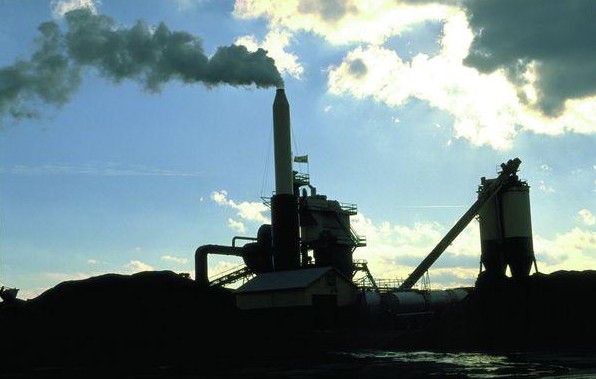


(File photo)
A reporter from Beijing Daily learned from the Beijing Environmental Protection Bureau on June 14 that Beijing has issued measures to improve and subsidize gas boilers.
Gas boilers that are able to reduce emission of nitrogen by 50 percent will receive government subsidies to cover one third of the improvement cost. The boiler emissions standard of Beijing will be stricter than standard currently observed in Europe by the year 2017.
Beijing Environmental Protection Bureau introduced that nitrogen oxides are important precursors of Beijing's PM2.5 and "raw material" of ozone pollution during summer months.
Since in 1998, Beijing adopted the first stage pollution control measures, so far the sulfur dioxide has reduced by 89 percent; however, the nitrogen dioxide only has reduced by 32 percent. In 2015, the average concentration of nitrogen dioxide was 50 microgram per cubic meter, higher than the national standard of 40 microgram per cubic meter.
Statistics show that currently, Beijing has over 10,000 gas boilers with an emission capacity of over 50,000 steam tons. If all the boilers are improved, it's estimated nearly 10,000 tons of nitrogen oxides emission would be reduced. A pollution control measure of this scale could significantly improve Beijing's air quality.
According to the new "Boiler air pollutant release standard", since April 1, 2017, newly constructed boilers should abide by newly adopted emission limit standard of 30 micrograms per cubic meter. Active boilers still found within the high-polluted fuel forbidden area will be asked to set emission limits of 80 micrograms per cubic meter. This standard has been stricter than the boiler emissions standards found in Europe and near the world’s strictest boiler emissions standard located in South California in the U.S.
 Five made-in-China hi-tech breakthroughs
Five made-in-China hi-tech breakthroughs Beijing Style: Hot pants
Beijing Style: Hot pants HK-Zhuhai-Macao Bridge to open to traffic
HK-Zhuhai-Macao Bridge to open to traffic China opens its first combined transport service to Nepal
China opens its first combined transport service to Nepal Students take stylish bikini graduations photos
Students take stylish bikini graduations photos Charming dancing students pose for graduation photos
Charming dancing students pose for graduation photos Guizhou, Yunnan section of Shanghai-Kunming railway connected
Guizhou, Yunnan section of Shanghai-Kunming railway connected Naked models transformed into landscapes, birds and even DRAGONS by body painting artist
Naked models transformed into landscapes, birds and even DRAGONS by body painting artist World’s biggest cruise ship Harmony of the Seas to start maiden voyage
World’s biggest cruise ship Harmony of the Seas to start maiden voyage Top 20 hottest women in the world in 2014
Top 20 hottest women in the world in 2014 Top 10 hardest languages to learn
Top 10 hardest languages to learn 10 Chinese female stars with most beautiful faces
10 Chinese female stars with most beautiful faces China’s Top 10 Unique Bridges, Highways and Roads
China’s Top 10 Unique Bridges, Highways and Roads Abortive careers
Abortive careers West traps itself by politicizing lone wolf
West traps itself by politicizing lone wolf Lenders threaten borrowers with nude pics
Lenders threaten borrowers with nude pics Local dog meat festival shouldn’t be canceled forcefully
Local dog meat festival shouldn’t be canceled forcefullyDay|Week